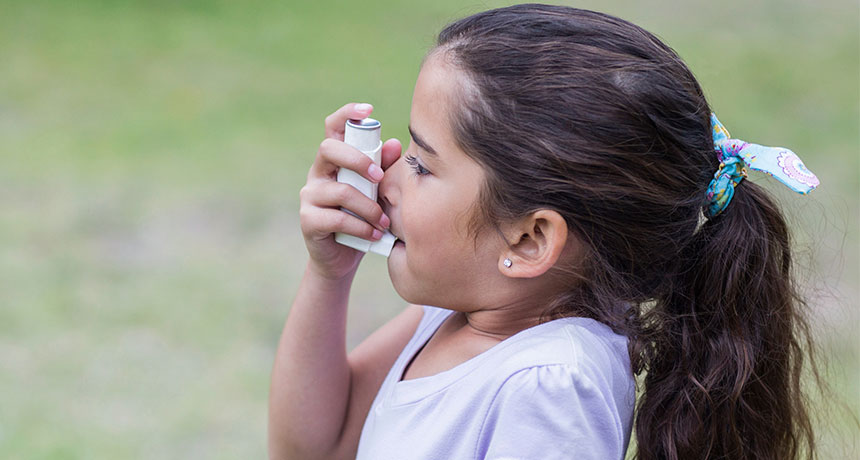Babies low on key gut bacteria at higher risk of asthma
First 100 days are critical period for microbe exposure

GOOD BUGS Getting the right infusion of gut microbes in the first three months after birth may reduce children’s risk of getting asthma (and the need for inhalers) later, a new study suggests.
Wavebreakmedia/iStockphoto







